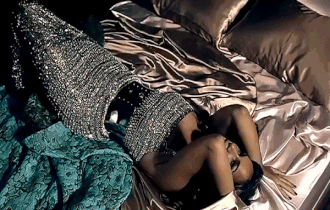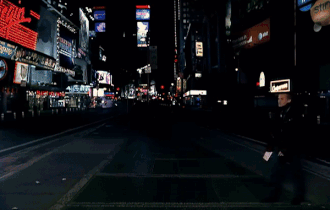Released: 22nd October 2007
Writers: Ryan Tedder / Jesse McCartney
Peak position: #1
Chart run: 1-1-1-1-1-1-1-2-3-2-3-12-17-16-28-33-37-33-33-41-40-43-38-45-53-54-69-68
Billboard Hot 100 chart run: 85-62-41-21-8-1-4-2-1-2-1-1-2-2-2-2-3-4-3-3-4-5-6-9-14-15-18-20-25-26-30-31-32-35-39-40-41-45-47
Almost a year after winning The X Factor, Leona Lewis released her first ‘proper’ single, Bleeding Love. Though always destined to be big, the song became a seminal moment in ‘00s pop music, broadening the ambition and scale of TV talent shows.

Bleeding Love is a song that very much exists as a product of The X Factor and, indeed, almost single-handedly dictated how the show operated for much of its 15-season (to date) run. However, such was the magnitude of the track and the circumstances around it that Bleeding Love also transcended the show, becoming significant – and similarly influential – to the charts in its own right. Either way, the impetus for Leona Lewis to record a song like this arose because despite triumphing with relative ease on The X Factor (she secured 60% of the winning vote and never finished in the bottom two throughout the series), the show had no immediate or obvious precedent for what to do with her talent. While Simon Cowell conceived the show to give him and the judging panel more control over the acts who auditioned, neither of the previous winners (Steve Brookstein and Shayne Ward) had been a breakout success.

So, there was a need to do things differently with Leona Lewis for The X Factor’s credibility as much as anything else. An early warning came from Gary Barlow, who performed with Take That alongside her in the final. Afterwards, he allegedly challenged Simon Cowell to ensure Leona Lewis launched with suitable material rather than rushing out an album. And that meant defiantly breaking what had become a well-established pattern for TV talent shows where the strategy had nearly always been to capitalise on the exposure and momentum with a hastily recorded follow-up. There was some logic behind that approach; given most shows operated on a 12-month cycle, it avoided a situation where the previous year’s winner was being properly launched while the search for a new star was already underway. But putting together an album of the quality Leona Lewis deserved would take time, so that’s what needed to happen. Thus, after her winners’ single – A Moment Like This – duly claimed the Christmas #1 spot in 2006, things suddenly went quiet…

Behind the scenes, though, it was anything but. The hype around Leona Lewis saw her UK record label (Syco) strike a deal to partner with J Records – founded by legendary music executive Clive Davis – for a near-simultaneous global launch. It was a bold move considering, at that point, Leona Lewis had one generically chosen single to her name. Furthermore, The X Factor hadn’t yet evolved to the stage where the contestants’ performances were styled to showcase artistic individuality. She was, in essence, a musical blank canvas. That was ultimately reflected in the high-profile team of writers and producers who contributed to her debut album, Spirit, including Dallas Austin, Walter Afanasieff, Max Martin, Steve Mac, StarGate and even Simon Cowell(!) himself. However, Bleeding Love – a song submitted for consideration by Ryan Tedder – became the eventual lead single.

The track was initially intended for US singer Jesse McCartney’s third album, Departure (he’s also credited as co-writer). However, upon presenting it to his label – Hollywood Records – they weren’t impressed and, believing the song lacked hit potential, pushed it back to Ryan Tedder. Adamant they were wrong and aware that Simon Cowell was seeking prospective material for Leona Lewis, he instead rearranged Bleeding Love to fit her voice and pitched it for Spirit. The initial reaction was far more positive, and by the time the track had been recorded and mixed, there could be no doubt that it met – and, in all likelihood, probably exceeded – expectations.

At first glance, Bleeding Love is so fitting for Leona Lewis because it emanates the sort of drama and big-voiced balladry trademarked by Mariah Carey and Whitney Houston in the ‘90s. Indeed, such comparisons were probably inevitable with names like Clive Davis and Walter Afanasieff attached to Spirit. That immediately gave Leona Lewis a clear direction and demonstrated Syco understood how to play to her strengths (something that had been far less apparent with Shayne Ward). Crucially, however, Bleeding Love doesn’t replicate the power-ballad sound; it’s updated to be a song that belongs in 2007 through Ryan Tedder’s production. The looming growl of a church organ opens the track and remains audible intermittently throughout, immediately bringing a sense of gravitas and magnitude. The thumping beat that kicks in during the first verse has a distinctive, distorted crunch, while flourishes of woodblock percussion and, later, sweeping strings ensure Bleeding Love voluminously fills out the speakers.

Yet, Ryan Tedder – who is solely responsible for all the instruments, programming and string arrangements – also demonstrates the value of restraint and measure. All the composite elements have their place and don’t grow to become bigger or more indulgent purely for the sake of it. While the instrumental may be front and centre of Bleeding Love, the intention was to showcase Leona Lewis, and that’s precisely what it allows to happen. After some teasing vocal riffs during the intro, the first lines of the song: “Closed off from love, I didn’t need the pain, once or twice was enough and it was all in vain, time starts to pass, before you know it you’re frozen, ooh” are delivered with the beat simulating a pulse that throbs gently alongside her. The track plays on the anticipation around Leona Lewis by hanging in stasis for 15 seconds as the curtain figuratively rises and she’s unveiled to the audience – finally – as a pop star.

And Bleeding Love really does deliver a payoff for the months spent developing Leona Lewis. Her voice drapes over the track; the rich warmth of her lower tone is contrasted with fist-clenching emotion as she sings with more urgency into her higher register. Nowhere does it necessarily feel that Bleeding Love pushes Leona Lewis to her limits – even during falsetto runs towards the end of the song – but it leaves no uncertainty whatsoever of her range and ability. Yet, that was never really in question for viewers who’d followed her through The X Factor. More important here is whether the material was good enough, and that’s where Bleeding Love triumphs. It presents the trope of a singer defying the advice of others to be in a relationship with someone she knows will hurt her and puts a unique – rather bleak – spin on the theme using the metaphor of Leona Lewis being cut open: “But I don’t care what they say, I’m in love with you, they try to pull me away, but they don’t know the truth, my heart’s crippled by the vein that I keep on closin’, you cut me open and I…”.

As love songs go, Bleeding Love is immensely well-written to stand out as something different with a macabre edge (“And it’s drainin’ all of me, though they find it hard to believe, I’ll be wearin’ these scars for everyone to see”), although never to the extent of jeopardising its mass-market appeal. The second part of the track’s double chorus uses a simple, repeated hook: “Keep bleedin’, keep, keep bleeding love, I keep bleedin’, I keep, keep bleeding love, keep bleedin’, keep, keep bleeding love, you cut me open…” that helps the song land with immediacy. Furthermore, it’s one of those finely crafted songs that can be identified from a few notes and lyrics, further helping weave Bleeding Love seamlessly into the fabric of popular culture.

Two music videos were created for Bleeding Love. The first – and most widely known outside of America – was filmed in LA and is set in an apartment block. It features different couples portraying various strifes in their relationship while Leona Lewis performs the song in a suitably histrionic fashion. She grasps the walls, sinks to her knees and rolls around on both the floor and bed, clutching the soft furnishings as her hair billows due to an off-screen wind machine. There’s even a sequence where the interior sprinkler system is set off, and Leona Lewis is left dramatically tousling her hair while water rains down from above. The video is coolly framed with cutaway shots of the building showing multiple rooms at once, and the addition of parallel set-piece storylines played out by the extras works effectively to make Bleeding Love more of a spectacle. In one, a fight breaks out after a man walks in on his partner cheating. At the same time, another features a woman rather ominously submerging herself in the bath after being left waiting by her boyfriend (though he arrives at the door in time for it to be unclear exactly what her intentions were). Despite so much else going on – all of it well-acted – Leona Lewis remains very much the focus. The styling is excellent, and the video positions her convincingly as a star.

Yet, despite only a few months passing before Bleeding Love arrived in America, a second music video was created for its release, this time filmed in New York. Ryan Tedder conceived the treatment, which has Leona Lewis directly involved in the relationship drama. It begins with her boyfriend storming off after an argument in Times Square. He returns to their apartment and packs a bag, leaving just before she returns. After buying a ticket, he boards a bus and returns to Times Square, where Leona Lewis had reappeared singing. She’s no longer there, but as the man approaches the spot where they earlier parted, he turns around to see her face appear on all the billboards around him. There’s no obvious point to the second video; the concept makes sense, but it’s not always easy to discern which shots are part of the narrative and which are just there as cutaways. Presumably, having New York on-screen was deemed as something that would appeal to US audiences. Still, even if it’s not apparent the original was shot in LA, nothing stands out as conspicuously off-putting or un-American. The video isn’t necessarily bad…just largely superfluous. It feels almost as though Ryan Tedder came up with an idea and – given how instrumental he’d been in pitching Bleeding Love and making the track what it is from a production perspective – the label decided to indulge his vision. If that is the case, few could argue he’d earned it.

There was never any doubt that Bleeding Love would reach #1 in the UK. It was widely promoted across radio and television, but most importantly, there was genuine goodwill towards Leona Lewis and a desire to see her succeed. First-week sales of 218,805 were more than the rest of that week’s top five combined and the biggest of the year to that point by a considerable margin (bettered only by the 275,742 copies Leon Jackson sold after winning series four of The X Factor). Bleeding Love remained at #1 for seven weeks and ended 2007 as the highest-selling single of the year with 786,652 copies. However, the enduring popularity of the song in the streaming era means its official total now exceeds two million copies.

The staggered release of Bleeding Love in America several months later meant Leona Lewis could undertake a similar promotional blitz there. She made her US debut on The Oprah Show before several high-profile performances culminated with an appearance on American Idol, watched by more than 24 million viewers. It didn’t take long for Bleeding Love to make an impact, either. After entering the Billboard Hot 100 at #85, it rapidly ascended and went on to spend five months in the top ten, reaching #1 on three separate occasions for a total of four weeks, making Leona Lewis the first British female singer to top the US chart since Kim Wilde in 1987. The track finished behind Flo Rida and T-Pain’s Low as the second-biggest hit of 2008 and the 17th-biggest track of the decade. The international rollout of Bleeding Love extended far further than America, though, with the track said to have topped the chart in more than 35 countries. And, while The X Factor could sometimes be creative with statistics, it’s entirely believable in this case.

The slew of achievements and accolades continued with the release of Spirit several weeks after Bleeding Love. In the UK, it became the fastest-selling debut album ever at the time, with first-week sales of 375,872 copies (the record is now held by Susan Boyle’s I Dreamed A Dream) and spent seven consecutive weeks atop the chart. The shelf-life of Spirit was extended when it was re-issued 12 months later with several new songs – and another X Factor performance – which saw it return to #1. The album is now firmly among the biggest of all time in the UK, having been certified 10x Platinum for sales of more than 3.18 million copies.

Like Bleeding Love, the release of Spirit was staggered in America by several months. It became the first album by a British artist to debut at #1 – with first-week sales of 205,000 copies – and went on to become a million-seller. Yet, while the US remained an integral part of the campaign (four singles from Spirit charted on the Billboard Hot 100), the album never reached the same commercial status as it did in the UK. That’s not to take away from Leona Lewis‘s achievement. She deservedly broke records and fundamentally reshaped the trajectory for TV talent show winners, particularly in the UK. Furthermore, The X Factor also changed, with the show becoming bigger in scale and ambition off the back of Spirit. Of course, the quality of the material – Bleeding Love, in particular – played a huge part in that, but Leona Lewis was no passenger. The serene poise with which she appeared to take everything in her stride, not to mention her world-class technical ability, ultimately tied the entire package together and made it so marketable.

That’s why Bleeding Love doesn’t feel like one of those tracks that could be regarded as a missed opportunity for the original singer. Even if Jesse McCartney’s version had been recorded and well-received, Hollywood Records would never have been able to do with the song what Simon Cowell and Clive Davis did with their respective record labels. Between them, they used their status and expertise to put Bleeding Love everywhere it needed to be to generate optimal levels of hype and exposure around Leona Lewis. Besides which, Jesse McCartney didn’t miss out entirely. The Departure album went on to be a success, regardless, yielding his biggest hit in America (Leavin’ reached #10 on the Billboard Hot 100). And Bleeding Love eventually came full circle when he recorded it for the deluxe edition – Departure: Reloaded – in 2009. If nothing else, the royalties he collected as co-writer of the track in the meantime must surely have softened any feelings of envy he might have experienced.

Even Hollywood Records’ stance is defensible to a certain extent. They were evidently wrong to have been so dismissive of Bleeding Love as a potential hit single. But it’s also fair to say that the track probably didn’t have an obvious place within their brand. As a record label of the Disney Music Group pushing Hannah Montana and High School Musical to a predominantly younger teen/tween audience, Bleeding Love’s lyrics may have seemed too graphic or morbid for that market when presented in a demo form. Yet, they misjudged how much the song – and its production, in particular – would impact the charts, which went far beyond its existence as a product of The X Factor. Ryan Tedder ended up working with some of the biggest artists at the time. And, while he didn’t just churn out inferior copies of Bleeding Love for them, tracks like Halo (Beyoncé), Already Gone (Kelly Clarkson), and Battlefield (Jordin Sparks) all evolved from the same elements.

Leona Lewis wasn’t the first TV talent show winner to enjoy international success. However, the fact it came because of her debut album rather than in spite of it disrupted a cynical pattern that emerged during the ‘00s and seemed destined to continue with The X Factor. Instead, a culmination of factors driven by Leona Lewis’ world-class talent fundamentally changed how the show created pop stars – whether they won or not – and the music that emerged from the contest (although the winners’ singles, by contrast, seemed to get markedly worse, with few exceptions). She might have released a cover of A Moment Like This as her first single, but make no mistake, Bleeding Love was – and unquestionably remains – Leona Lewis’s defining moment.



